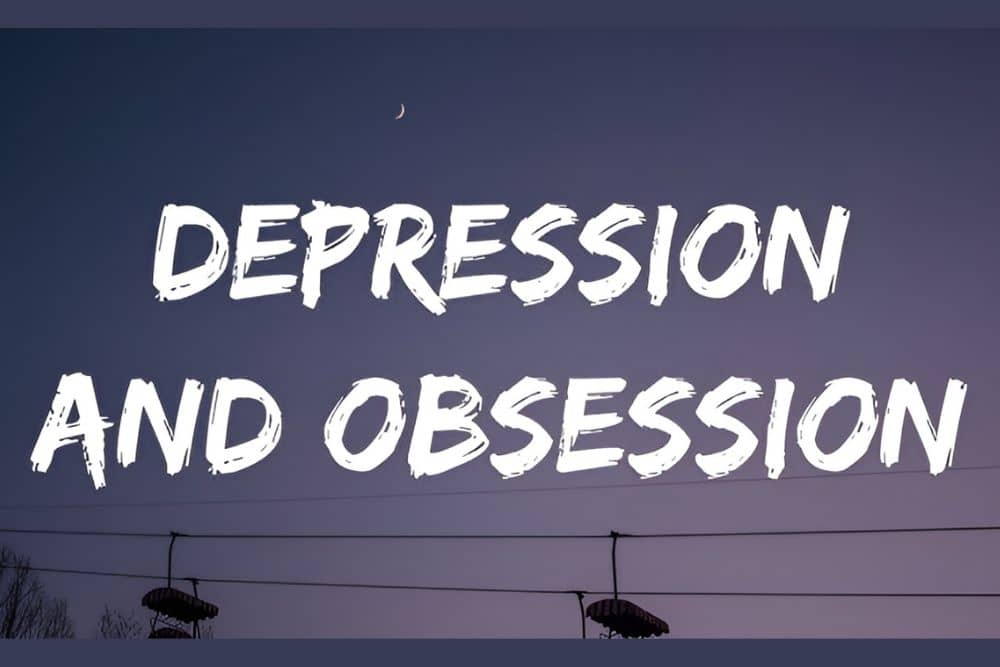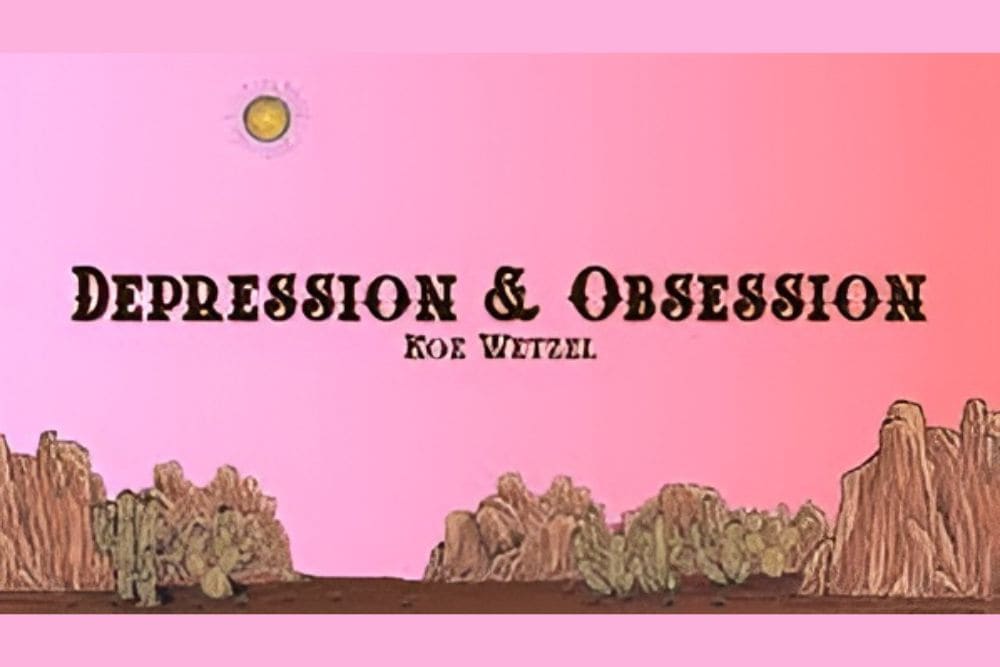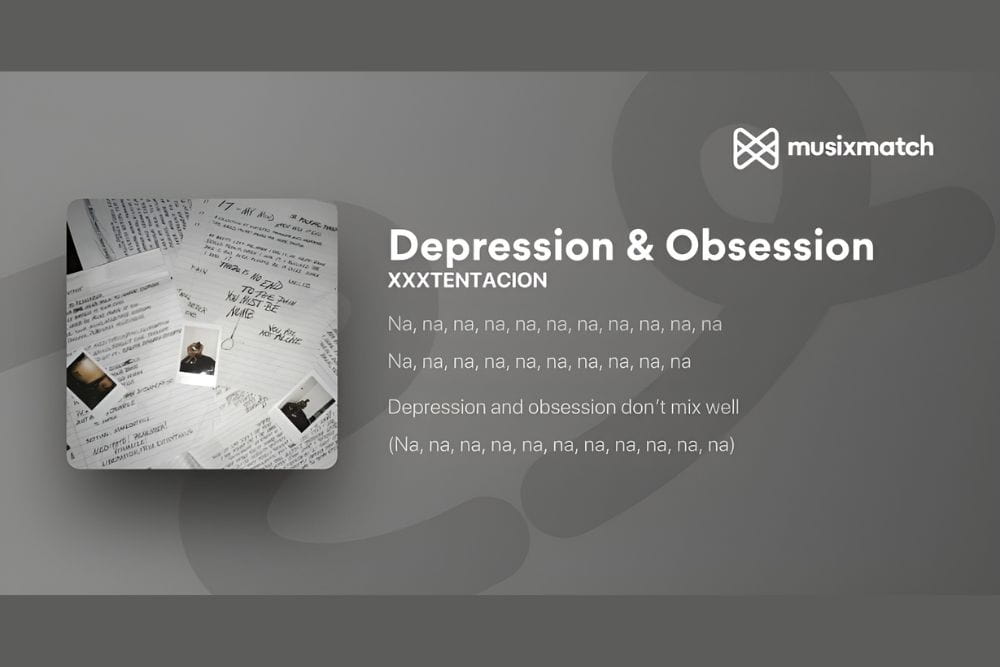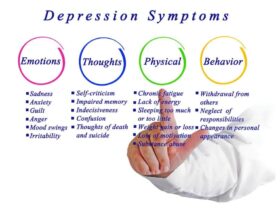Depression and obsession lyrics Music has a remarkable way of speaking to our emotions, articulating feelings we sometimes can’t express ourselves. For many, songs that delve into themes like depression and obsession provide solace and a sense of connection. Lyrics that explore these dark yet relatable feelings are often among the most powerful, as they mirror the listener’s inner battles and validate their experiences. This article delves into the impact of such lyrics, exploring why they resonate with audiences, how they serve as an emotional release, and what these themes mean in the broader context of mental health awareness.
Depression and obsession lyrics: The Role of Music as an Emotional Outlet
Music is often seen as a universal language that allows people to express complex and intense emotions. For listeners experiencing depression or obsessive thoughts, songs with lyrics that reflect these emotions provide a comforting space to process feelings of isolation, sadness, or longing. Music becomes an emotional outlet, a haven where listeners feel understood without judgment.
How Lyrics Bring Out Inner Struggles
When artists share their battles through lyrics, it often permits listeners to feel the same emotions. A song can say what words fail to convey, bringing relief and understanding. Many people find it easier to feel and process their feelings when they’re echoed in the lyrics of a favorite song, allowing them to explore their feelings healthily.
2. The Appeal of Lyrics About Depression and Obsession
- Validation and Connection: Lyrics that capture the darkness of depression or the persistence of obsessive thoughts resonate because they validate the listener’s experiences. When people hear lyrics that match their feelings, they feel less alone.
- Catharsis Through Music: Listening to music about sadness or obsession can be cathartic. Songs that acknowledge these struggles help listeners release pent-up emotions safely and constructively.
- Relatability and Empathy: Many listeners feel these songs “get them.” Artists who express their vulnerability provide a sense of shared experience, fostering empathy and connection.
3. Notable Songs and Artists Addressing Depression and Obsession
- Lana Del Rey: Known for her melancholic themes, Lana Del Rey has addressed loneliness, heartbreak, and existential sadness in songs like “Summertime Sadness” and “Born to Die”. Her lyrics often delve into depression, romantic longing, and obsession.
- Juice WRLD: His songs, like “Lucid Dreams” and “Wishing Well,” reflect themes of heartbreak, addiction, and mental health struggles. Juice WRLD’s raw, confessional style resonates deeply with listeners, especially those dealing with depression and obsessive thoughts.
- Billie Eilish: In songs like “When the Party’s Over“ and Billie explores feelings of self-doubt, sadness, and loneliness. Her lyrics capture the quiet intensity of depression and resonate with young listeners struggling with similar issues.
These artists and their Depression and obsession lyrics provide a sense of solidarity for listeners. By openly discussing mental health, they help break the stigma, making it easier for others to share their own experiences.
4. Analyzing Lyrics to Understand Mental Health Themes

Depression in Lyrics
- Imagery of Darkness and Isolation: Many lyrics use dark or cold imagery to depict the weight of depression. Words like “darkness,” “alone,” and “void” appear frequently in songs addressing depressive themes.
- Hopelessness and Despair: Depression and obsession lyrics often reflect feelings of hopelessness, conveying the sense that depression is an endless struggle. Songs like “Mad World” by Gary Jules capture this sentiment perfectly.
- Escapism: In some lyrics, there’s a yearning for escape. Artists may express a desire to run away from their pain or to find solace in an unreachable place.
Obsession in Lyrics
- Fixation and Longing: Obsession-themed lyrics often reflect an inability to move on from a particular person, feeling, or experience. Songs like “Every Breath You Take” by The Police use repetition to mirror the fixated mindset of obsession.
- Repetition of Themes: Obsessive thoughts often involve endless replay of memories or ideas, which is reflected in the repetition of phrases or ideas in Depression and obsession lyrics. This can create an intense, almost hypnotic effect, resonating with listeners who have experienced similar thoughts.
- Conflicted Emotions: Obsession often comes with a mix of love, resentment, and self-doubt. These complicated emotions are expressed in Depression and obsession lyrics that swing between admiration and frustration, capturing the obsessive thoughts cycle.
5. The Impact of These Lyrics on Listeners
- Sense of Belonging: For many listeners, finding a song that reflects their struggles makes them feel understood. They realize they’re not alone, which can be comforting and reduce feelings of isolation.
- Raising Awareness: Songs addressing mental health issues help destigmatize them. When well-known artists discuss their struggles openly, it encourages society to see mental health issues in a more compassionate light.
- Caution and Balance: While these lyrics can be therapeutic, they can also be triggering for some individuals. For those in a fragile state, music that focuses on depressive or obsessive themes may intensify negative emotions. Listeners need to know their limits and seek positive outlets when needed.
6. How Music Contributes to the Mental Health Conversation
- Breaking the Silence: Artists who openly sing about depression and obsession help to dismantle the stigma associated with these issues. When listeners hear these themes in mainstream music, it normalizes mental health struggles and opens up conversations.
- Offering Supportive Communities: Fans often connect over shared experiences with a particular song or artist. These communities provide support through fan groups, social media, or shared experiences at concerts.
- Promoting Mental Health Resources: Some artists actively promote mental health awareness, encouraging fans to seek help. Organizations and musicians are increasingly collaborating to provide resources to fans who may be struggling.

Conclusion
Lyrics that explore themes of Depression and obsession lyrics are powerful because they give voice to emotions that are often hidden. They offer listeners comfort, validation, and the chance to see their experiences reflected in art. While the lyrics themselves may be somber, the impact of these songs is often positive, as they foster empathy, awareness, and community support around mental health. In the end, these lyrics remind us that even in our darkest moments, we are not alone—and sometimes, that small reminder can make all the difference.













Leave a Reply